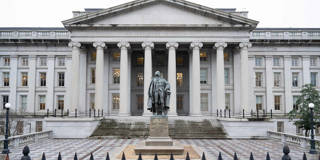
A New Economic Policy Playbook
We are living in a world of overlapping emergencies – climate change, a pandemic, mounting geopolitical tensions – and more shocks are sure to come. Policymakers need to be prepared to react before the next one unleashes widespread inflation once again, and interest-rate hikes are not the answer.
AMHERST – At the end of 2021, The Guardian published one of my first newspaper commentaries, in which I criticized the rush to use interest-rates hikes to combat inflation and reminded my readers of the history of a long-neglected alternative: strategic, targeted price controls. At the time, this was judged to be an act of heresy.